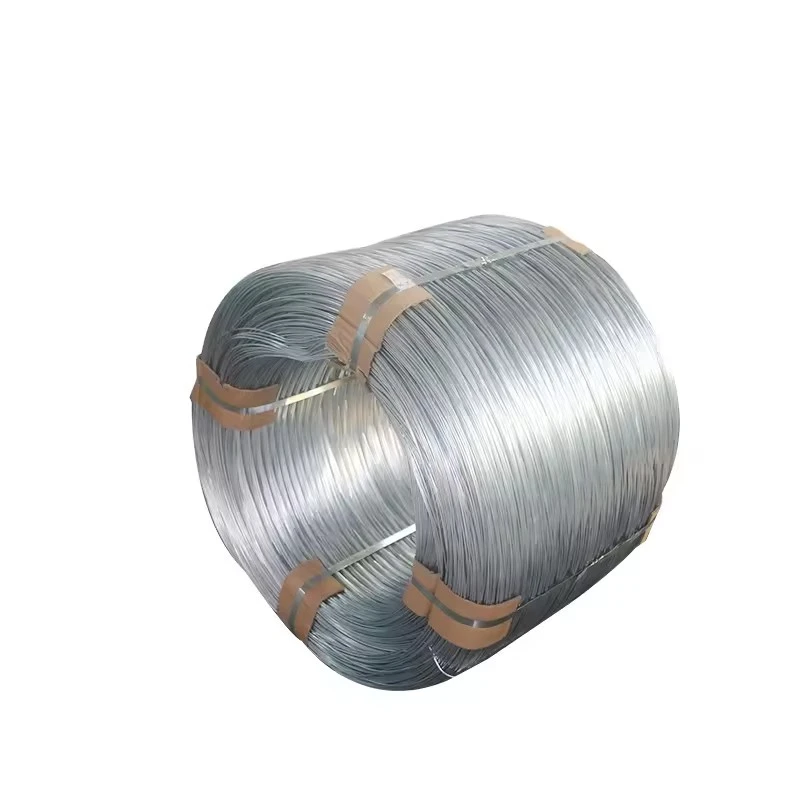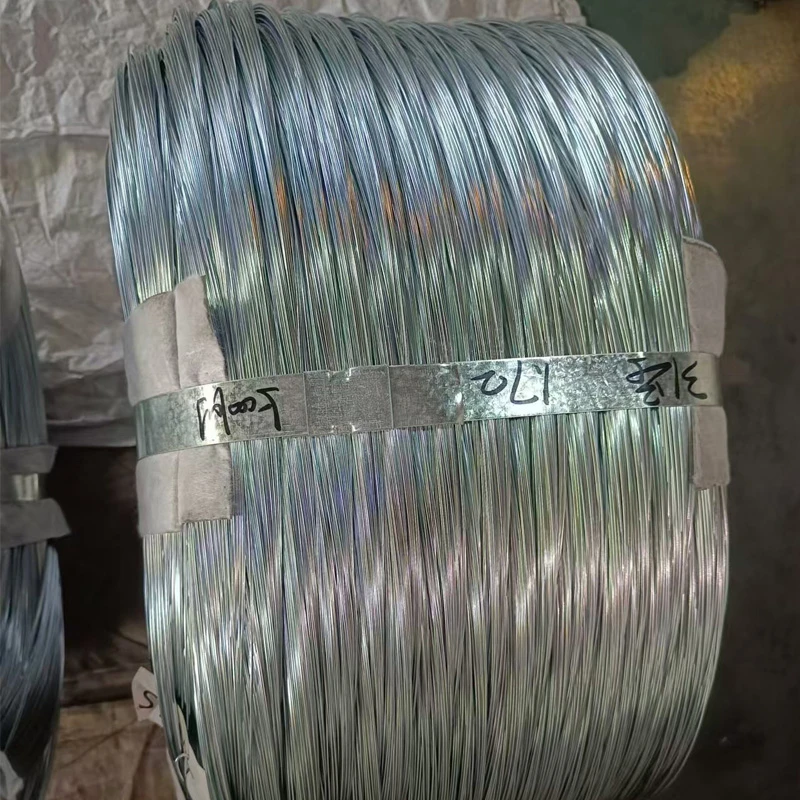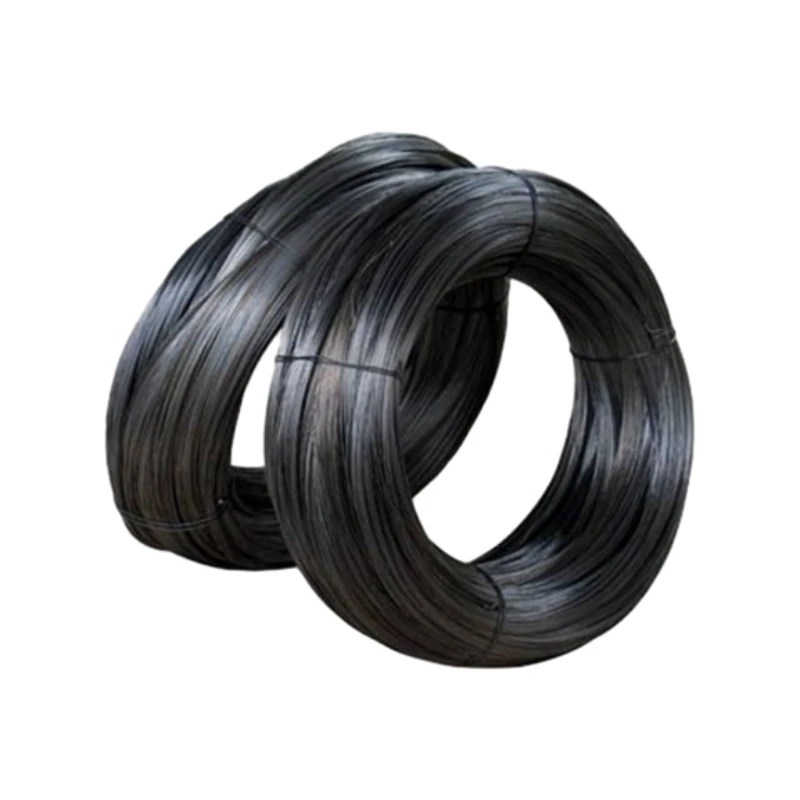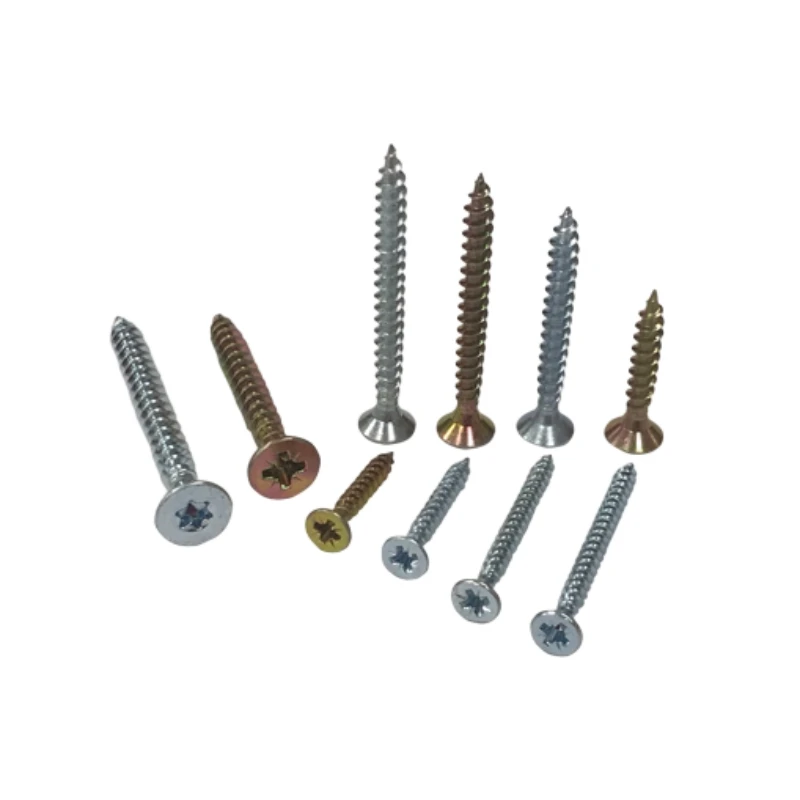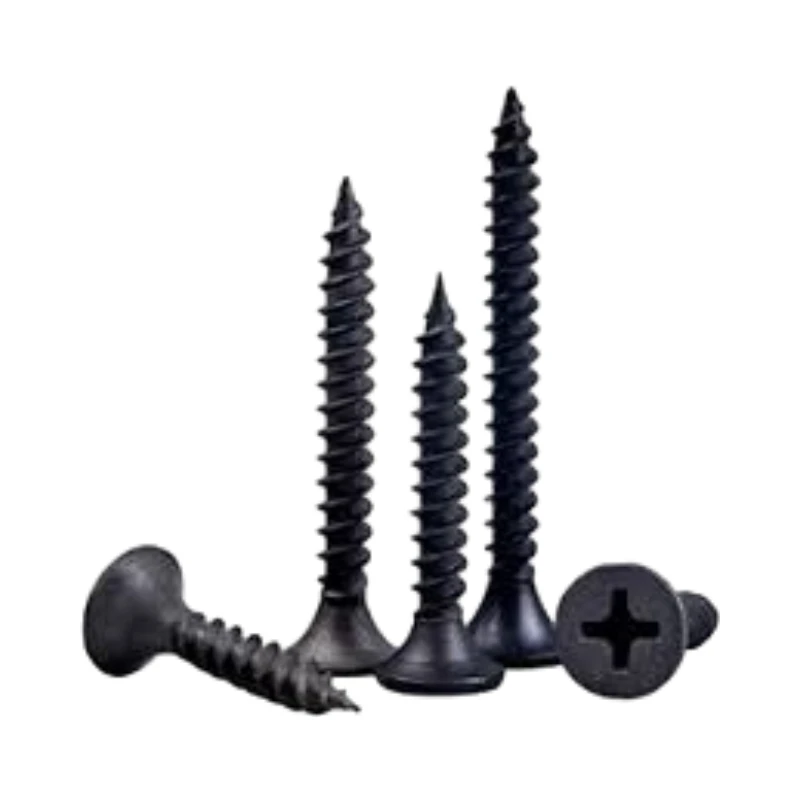
Talk With Us
+86-13601661296
Email Address
admin@sxjbradnail.com16 Gauge Finish Nails: Strong, Precise for Trim & Molding
Understanding the 16 Gauge Nail in Modern B2B Applications
In the realm of industrial fastening, the 16 gauge nail stands as a critical component, bridging the gap between lighter brads and heavier framing nails. Its optimal balance of strength, penetration, and minimal impact makes it indispensable across diverse B2B sectors, from intricate woodworking to robust construction. This deep dive explores the technical intricacies, application versatility, and strategic importance of these fasteners for decision-makers and technical professionals seeking precision and reliability.
Manufactured with stringent quality controls, the 16 gauge nail offers superior holding power while reducing the risk of splitting delicate materials. Its widespread adoption is a testament to its performance consistency and adaptability in demanding environments, making it a cornerstone for efficient and durable assembly processes. We will delve into its manufacturing, technical specifications, market trends, and practical applications, providing a comprehensive overview for industrial procurement and engineering teams.
Industry Trends and Market Dynamics for 16 Gauge Fasteners
The market for industrial fasteners, particularly for 16 gauge nails and related products like 16 gauge staples, is experiencing sustained growth driven by global construction expansion, advancements in prefabricated building components, and the increasing demand for high-quality interior finishing. Innovations in material science are leading to enhanced corrosion resistance and tensile strength, further broadening the application spectrum of these fasteners.
Key trends include a shift towards automation in fastening processes, requiring nails with tighter dimensional tolerances and superior feed characteristics. There's also a growing emphasis on sustainability, prompting manufacturers to explore recycled materials and more energy-efficient production methods. Furthermore, the rising popularity of durable and aesthetic finishes in commercial and residential projects directly impacts the demand for fasteners that provide both structural integrity and a clean finish, where the smaller head of a 16 gauge brad nails is often preferred.
The adoption of precise pneumatic and cordless nailers is also driving demand for high-performance nails engineered for consistent firing and jam-free operation. This technological synergy between fastening tools and fasteners underscores the importance of quality in the manufacturing of every 16 gauge nail.
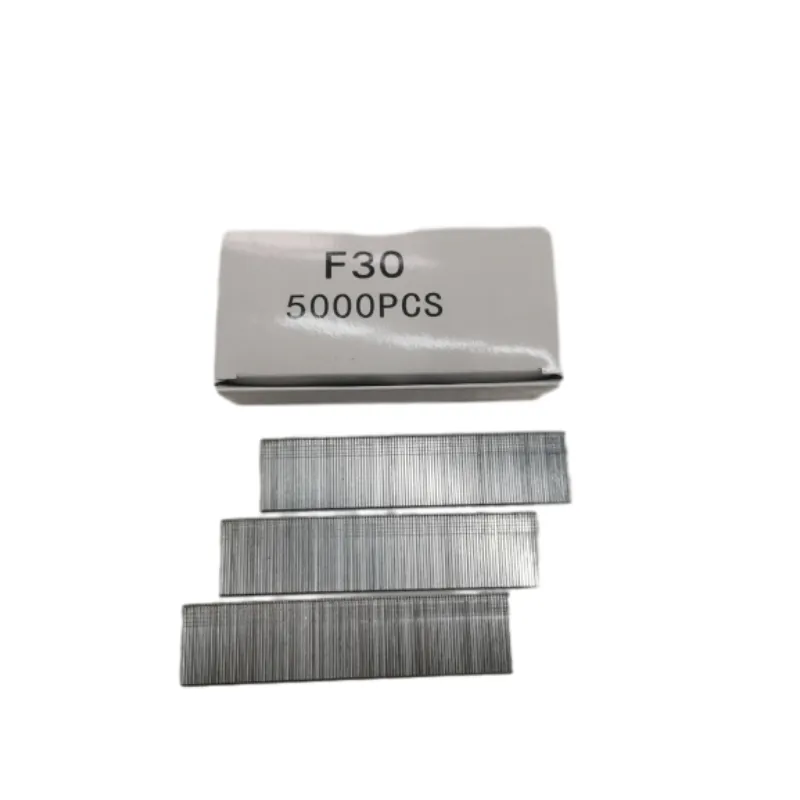
Manufacturing Process Flow of the 16 Gauge Nail
The production of a high-quality 16 gauge nail involves a meticulously controlled process, ensuring each fastener meets stringent performance and dimensional specifications. Our manufacturing adheres to international standards like ISO 9001 for quality management and relevant ANSI standards for dimensional consistency and material properties.
Process Steps:
1. Raw Material Procurement & Inspection:
High-grade carbon steel wire, typically SAE 1008 or equivalent, is sourced. Each batch undergoes rigorous chemical composition analysis and mechanical property testing (tensile strength, yield strength) to ensure compliance with material specifications. This forms the foundation for a durable 16 gauge nail.
2. Wire Drawing & Annealing:
The steel wire is drawn through progressively smaller dies to achieve the precise 16 gauge nail size (approximately 1.628 mm or 0.064 inches in diameter). Intermediate annealing processes may be employed to relieve stress and improve ductility, preventing material fatigue during subsequent forming operations.
3. Cold Heading & Point Forming (Forging/Stamping):
The wire is fed into a cold heading machine where a header die forms the nail head, and a gripper die holds the wire. Simultaneously, a cutter cuts the wire to the desired length, and a punch forms the point (e.g., chisel point, blunt point). This is a cold forging process, enhancing material strength.
4. Shank Grooving (Optional):
For enhanced holding power, some 16 gauge nails undergo shank grooving (e.g., annular rings, helical threads). This is achieved through roll forming, where the nail shank passes between dies that impress the desired pattern.
5. Cleaning & Surface Treatment:
Nails are cleaned to remove drawing lubricants and debris. They then undergo surface treatments such as galvanization (for corrosion resistance, similar to 16 gauge gi wire), resin coating for increased friction, or bright finishing for aesthetic applications. Zinc plating or hot-dip galvanizing are common for exterior use.
6. Collation (for Strip Nails):
For pneumatic nailers, individual nails are collated into strips using paper, plastic, or wire welding. Precision in collation ensures smooth feeding and minimizes jamming, a critical aspect for efficient operation with 16 gauge brad nails.
7. Quality Control & Packaging:
Final inspection includes dimensional checks, coating thickness verification, shear strength tests, and bending tests. Automated optical inspection systems are used to identify defects. Products are then packaged for protection during transit, ensuring they arrive in optimal condition for industrial use.
Target Industries & Advantages:
- Construction & Carpentry: Finishing, trim, cabinetry. Advantages: Minimal splitting, clean finish, robust holding power.
- Furniture Manufacturing: Assembly of frames, decorative elements. Advantages: Precision, resistance to pull-out, aesthetic integration.
- Crate & Pallet Assembly: Durable fastening for logistics. Advantages: Structural integrity, longevity in varied conditions.
- Automotive Interior: Trim and upholstery fastening. Advantages: Consistent depth, prevents material damage.
Technical Specifications of Heavy-Duty 16 Gauge Brad Nails
The performance of a 16 gauge nail is intrinsically linked to its precise technical specifications. Our heavy-duty 16 gauge brad nails for woodworking projects are engineered for optimal penetration, holding strength, and durability, ensuring reliability in demanding applications.
Product Specification Table: Heavy-duty 16 Gauge Brad Nails
| Parameter | Specification |
|---|---|
| Gauge Size | 16 Gauge (1.628 mm / 0.064 in) |
| Material | High-Carbon Steel (e.g., SAE 1022) |
| Length Range | 25mm (1 inch) to 64mm (2.5 inches) |
| Head Type | Brad Head (slight conical taper for minimal visibility) |
| Shank Type | Smooth or Annular Ring (for enhanced pull-out resistance) |
| Point Type | Chisel Point (reduces splitting, precise penetration) |
| Coating Options | Bright, Galvanized (Electro-Galvanized or Hot-Dip), Resin Coated |
| Tensile Strength | Minimum 800 MPa (Dependent on material and heat treatment) |
| Shear Strength | Minimum 2000 N (Typical for carbon steel) |
| Compliance | ASTM F1667, ISO 9001 (Manufacturing) |
These specifications ensure that each 16 gauge nail performs optimally under various load conditions, providing reliable fastening solutions. The choice of coating, for instance, dictates the nail's suitability for interior (bright, resin-coated) or exterior (galvanized) applications, directly influencing its service life and corrosion resistance.
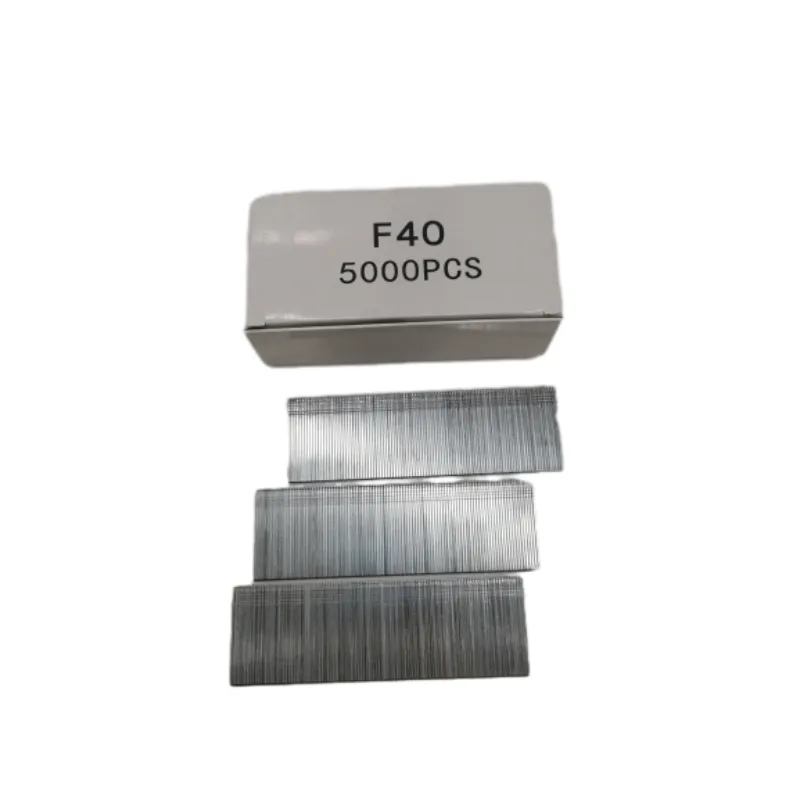
Key Application Scenarios for 16 Gauge Nails
The versatility of the 16 gauge nail makes it a staple across numerous B2B application scenarios where strength, a clean finish, and efficient installation are paramount. From residential construction to specialized manufacturing, its properties are uniquely suited for specific tasks.
Typical Applications Include:
- Trim and Molding Installation: The small head of a 16 gauge brad nails is ideal for securing baseboards, crown molding, door and window casings, and other decorative trim pieces. It creates a virtually invisible hole that requires minimal filling, preserving the aesthetic integrity of the finish.
- Cabinetry and Furniture Assembly: In fine woodworking and furniture manufacturing, these nails are critical for assembling frames, attaching back panels, and securing various components without splitting hardwoods or leaving unsightly marks. Their robust holding power ensures long-lasting structural integrity.
- Paneling and Siding (Light-Duty): For interior wall paneling or lightweight exterior siding, the 16 gauge nail provides sufficient fastening strength. Galvanized versions are often preferred for exterior applications to resist weathering and corrosion, similar to durable 16 gauge gi wire in other constructions.
- Subflooring and Decking (Temporary/Light): While not typically used for structural subflooring, they can be employed for temporary fastening or for securing thin underlayment layers. In decking, they might be used for securing lighter trim elements or as initial fasteners before permanent screws are driven.
- Crate and Box Manufacturing: In packaging and logistics, the reliability of a 16 gauge nail is crucial for assembling sturdy crates and boxes, ensuring product safety during transit. Their consistent performance in pneumatic tools enhances production line efficiency.
- Door and Window Frame Construction: These fasteners are used for assembling interior door frames and window sashes, providing rigid connections that withstand daily use. The precise 16 gauge nail size minimizes material damage while providing strong joints.
Each application benefits from the specific attributes of the 16 gauge nail, emphasizing its adaptability and superior performance compared to alternatives for tasks requiring a balance of strength and finesse.
Technical Advantages and Performance Characteristics
The selection of a 16 gauge nail over other fastener types is often dictated by its unique blend of technical advantages, offering optimal performance for a specific range of tasks. These advantages translate directly into increased efficiency, durability, and cost-effectiveness for B2B operations.
Key Advantages Include:
- Superior Holding Power: Compared to lighter 18 gauge brads, the increased diameter and tensile strength of a 16 gauge nail provide significantly greater pull-out and shear resistance, making joints more robust and long-lasting. This is crucial for load-bearing trim or furniture components.
- Reduced Material Splitting: Despite its larger diameter than an 18-gauge, the optimized point geometry (typically chisel point) and material properties of quality 16 gauge nails minimize wood splitting, even in delicate hardwoods. This reduces material waste and rework.
- Enhanced Finish Quality: The small, discreet head of a 16 gauge brad nails allows for flush or slightly countersunk penetration, leaving a minimal hole that is easily filled and sanded, ensuring a professional and virtually invisible finish.
- Versatile Compatibility: Designed for pneumatic and cordless brad nailers, these fasteners ensure high-speed, consistent application, improving labor efficiency on job sites and in manufacturing facilities. The specific 16 gauge nail size is standardized for universal tool compatibility.
- Corrosion Resistance Options: Available with various coatings, from bright (for interior, dry applications) to electro-galvanized or hot-dip galvanized (for exterior, moisture-prone environments), offering tailored solutions for different service life requirements. This is comparable to the protective coatings found on high-quality 16 gauge gi wire.
- Cost-Effectiveness: The combination of durability, efficient application, and reduced rework translates into significant long-term cost savings for large-scale projects and continuous production runs.
These characteristics make the 16 gauge nail an intelligent choice for professionals who demand both structural integrity and aesthetic perfection in their fastening solutions.
Vendor Comparison and Selection Criteria
Choosing the right vendor for your 16 gauge nail procurement is as crucial as selecting the nail itself. A comprehensive vendor assessment should extend beyond mere price, incorporating factors like product quality, manufacturing consistency, supply chain reliability, and technical support. This section outlines key comparison points for B2B decision-makers.
Key Vendor Comparison Criteria:
- Product Quality & Consistency: Evaluate material certifications (e.g., steel grade), manufacturing tolerances (consistent 16 gauge nail size and length), and performance testing data (shear, pull-out strength). Inconsistent quality can lead to tool jams, material damage, and project delays.
- Certifications & Compliance: Prioritize suppliers with ISO 9001 certification and products that meet relevant industry standards (e.g., ASTM F1667). This indicates a commitment to quality management and product reliability.
- Supply Chain & Logistics: Assess lead times, minimum order quantities (MOQs), and delivery reliability. A robust supply chain minimizes downtime and ensures project continuity, especially for high-volume requirements of 16 gauge staples or nails.
- Customization Capabilities: For specialized applications, inquire about options for custom lengths, coatings, or collation types. A vendor's ability to provide customized solutions can be a significant advantage.
- Technical Support & After-Sales Service: Access to knowledgeable technical support for application guidance and troubleshooting, along with clear warranty policies, enhances the overall value proposition.
- Pricing & Value: While not the sole factor, competitive pricing coupled with the aforementioned quality and service aspects defines true value. Consider the total cost of ownership, including potential waste and rework from lower-quality alternatives.
Typical Comparison Table for 16 Gauge Brad Nails Vendors
| Feature | Vendor A (Premium) | Vendor B (Standard) | Vendor C (Economy) |
|---|---|---|---|
| Material Grade | SAE 1022 Certified | Standard Carbon Steel | Unspecified Carbon Steel |
| Corrosion Resistance | Hot-Dip Galvanized (ASTM A153) | Electro-Galvanized | Bright Finish Only |
| Collation Consistency | High (±0.5mm spacing) | Good (±1.0mm spacing) | Variable (±2.0mm spacing) |
| Certifications | ISO 9001, ASTM Compliant | ISO 9001 | None Specified |
| Customization | Yes (Length, Coating, Shank) | Limited (Length) | No |
| Lead Time (Standard) | 2-3 Weeks | 3-4 Weeks | 4-6 Weeks |
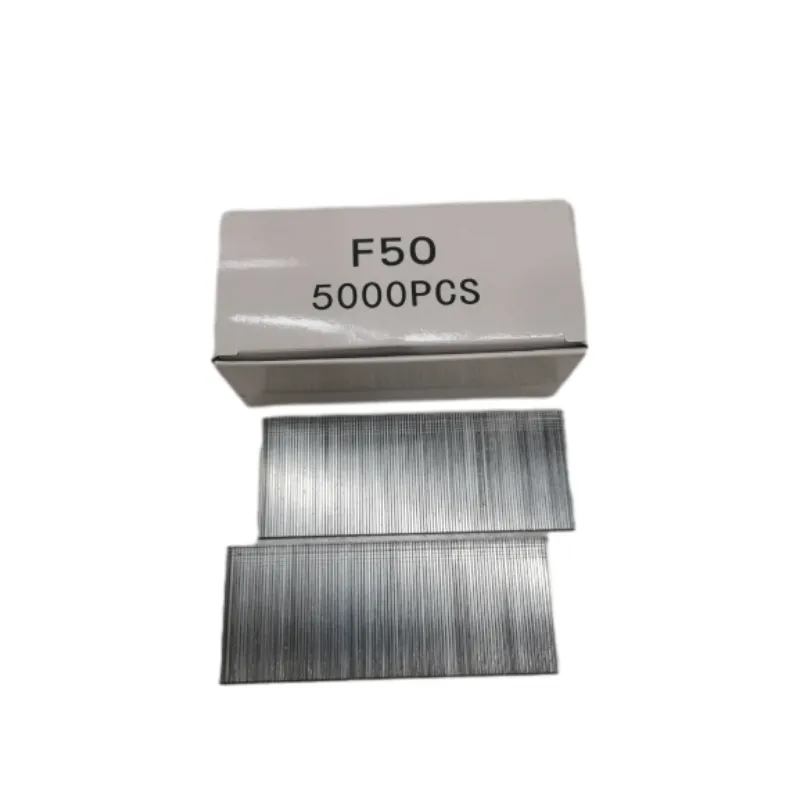
This structured comparison aids in making an informed decision that aligns with project requirements and long-term operational goals, ensuring optimal performance from every 16 gauge nail.
Customized Solutions for 16 Gauge Fasteners
While standard 16 gauge nails meet a broad range of applications, specialized projects often demand fasteners with unique characteristics. We offer extensive customization capabilities to tailor our heavy-duty 16 gauge brad nails to precise client specifications, ensuring optimal performance in niche or challenging environments.
Customization Options Include:
- Custom Lengths: Beyond standard sizes, we can produce 16 gauge nails in specific lengths required for unique material thicknesses or specialized joinery, ensuring optimal penetration depth and holding power.
- Specialized Coatings: While standard galvanization and bright finishes are common, we can apply advanced coatings such as epoxy, vinyl, or specialized polymer resins to enhance corrosion resistance, lubrication for easier driving, or increased friction for superior withdrawal resistance. This extends to specialty requirements for 16 gauge gi wire or other coated products.
- Shank Design Modifications: Custom annular rings, helical threads, or smooth shanks can be engineered to maximize holding power in specific wood types or composite materials. This is particularly relevant for applications where dynamic loads are present.
- Point Geometry: While chisel points are standard for a 16 gauge nail, we can modify point angles or introduce blunt or diamond points for specific applications, such as reducing splintering in extremely dense materials or for blind fastening techniques.
- Material Variations: For highly specialized environments, alternative materials such as stainless steel (304 or 316 grade) can be utilized, providing superior corrosion resistance in marine, chemical, or high-humidity settings.
- Collation Type: Tailored collation methods (e.g., specific strip counts, adhesive types) can be developed to optimize feeding compatibility with proprietary fastening tools or automated assembly lines.
Our engineering team collaborates closely with clients to define requirements, conduct feasibility studies, and deliver prototype samples, ensuring the customized 16 gauge nail precisely meets performance expectations and project timelines.
Real-World Application Case Studies
Demonstrating the efficacy of the 16 gauge nail through real-world examples highlights its value proposition in various industrial contexts. These case studies underscore how our fasteners contribute to project success, durability, and operational efficiency.
Case Study 1: High-End Cabinetry Manufacturing
Challenge: A leading custom cabinetry manufacturer required a fastener that provided exceptional holding power for hardwood frames and trim while leaving an almost invisible finish. Previous 18-gauge brads lacked sufficient strength, leading to call-backs, while larger nails caused excessive splitting and cosmetic defects.
Solution: We supplied heavy-duty 16 gauge brad nails with a resin coating for enhanced friction and a precision chisel point. The specific 16 gauge nail size and head design allowed for deep, secure fastening with minimal material displacement. Customer feedback praised the significant reduction in splitting and the near-invisible finish, drastically cutting down on rework and enhancing product quality.
Case Study 2: Prefabricated Housing Interior Finishing
Challenge: A modular housing producer needed fasteners for rapid and reliable interior trim installation across thousands of units. Consistency in nail collation and resistance to tool jams were critical for maintaining production speed and avoiding costly line stoppages for their 16 gauge nails.
Solution: We provided collated 16 gauge nails designed with stringent dimensional tolerances and a high-strength paper collation strip. Our engineering team worked with the client to optimize nailer settings for optimal drive depth. The result was a 15% increase in installation speed and a 70% reduction in tool jams compared to their previous supplier, directly impacting their build efficiency and profitability. This demonstrated the robustness of the 16 gauge nail in high-volume applications.
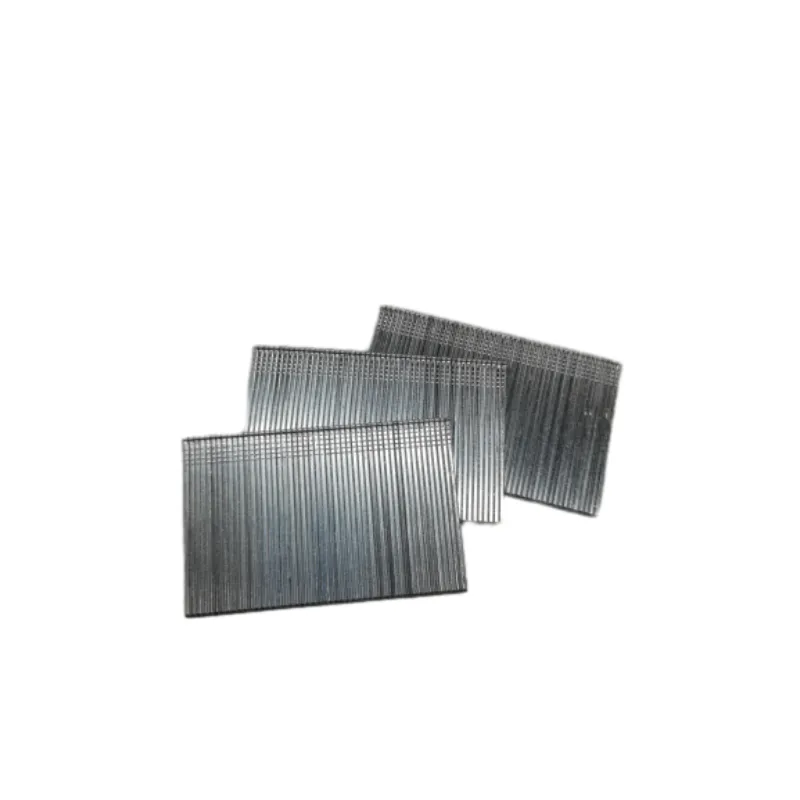
Frequently Asked Questions (FAQ) about 16 Gauge Nails
Q: What is the primary advantage of a 16 gauge nail over an 18 gauge nail?
A: The primary advantage is increased holding power and strength due to its larger diameter. While an 18-gauge is excellent for delicate trim where minimal hole size is critical, the 16 gauge nail offers a superior balance of holding strength and discreet finish, making it suitable for more structural trim, cabinetry, and furniture assembly where higher load-bearing capacity is required.
Q: Can 16 gauge nails be used for exterior applications?
A: Yes, but it is crucial to select 16 gauge nails with appropriate corrosion-resistant coatings, such as hot-dip galvanized or stainless steel. Bright finish nails are only suitable for interior, dry applications. Always match the nail's coating to the environmental exposure to ensure longevity.
Q: What types of tools are compatible with 16 gauge brad nails?
A: 16 gauge brad nails require a dedicated 16-gauge brad nailer, which can be pneumatic (air-powered) or cordless (battery-powered). These tools are designed specifically for the 16 gauge nail size and collation type, ensuring proper firing and setting depth. They are distinct from 18-gauge brad nailers or framing nailers.
Q: How do I ensure consistent nail depth in my applications?
A: Consistent nail depth depends on several factors: the quality of the 16 gauge nail itself (uniform material and dimensions), the calibration of your nailer (air pressure for pneumatic tools, power settings for cordless), and the density of the material being fastened. Regular tool maintenance and test firing on scrap material are recommended to achieve optimal, consistent depth.
Logistics, Warranty, and Customer Support
At SXJ-Staple.com, we understand that reliable supply chain management and robust after-sales support are paramount for our B2B clients. Our commitment extends beyond providing high-quality 16 gauge nail products to ensuring a seamless procurement experience and peace of mind.
Lead Time & Fulfillment:
Our standard lead time for in-stock 16 gauge nails and related fasteners (like 16 gauge staples) is typically 5-7 business days for North American and European markets, and 10-15 business days for Asia-Pacific, depending on order volume and specific requirements. For custom orders or large-volume procurements, lead times will be mutually agreed upon during the quotation phase, factoring in production schedules and logistical complexities. We leverage a robust network of shipping partners to ensure timely and secure delivery.
Warranty Commitments:
All our 16 gauge brad nails are manufactured to the highest industry standards and come with a standard 12-month limited warranty against manufacturing defects from the date of purchase. This warranty covers material flaws, dimensional inconsistencies, and issues related to collation that impact product performance under normal usage conditions. Detailed warranty terms and conditions are available upon request and provided with every major order, reflecting our confidence in the quality of every 16 gauge nail we produce.
Dedicated Customer Support:
Our dedicated B2B customer support team is available to assist with product selection, technical inquiries, order tracking, and any post-purchase support. We offer multi-channel support via phone, email, and a dedicated client portal. Our technical experts can provide guidance on optimal nail selection for specific materials, tool compatibility, and best practices for fastener application, ensuring you maximize the performance of your 16 gauge nails.
For immediate assistance or detailed consultations, please contact our sales team through the information provided on our website. We are committed to fostering long-term partnerships built on trust, quality, and exceptional service.
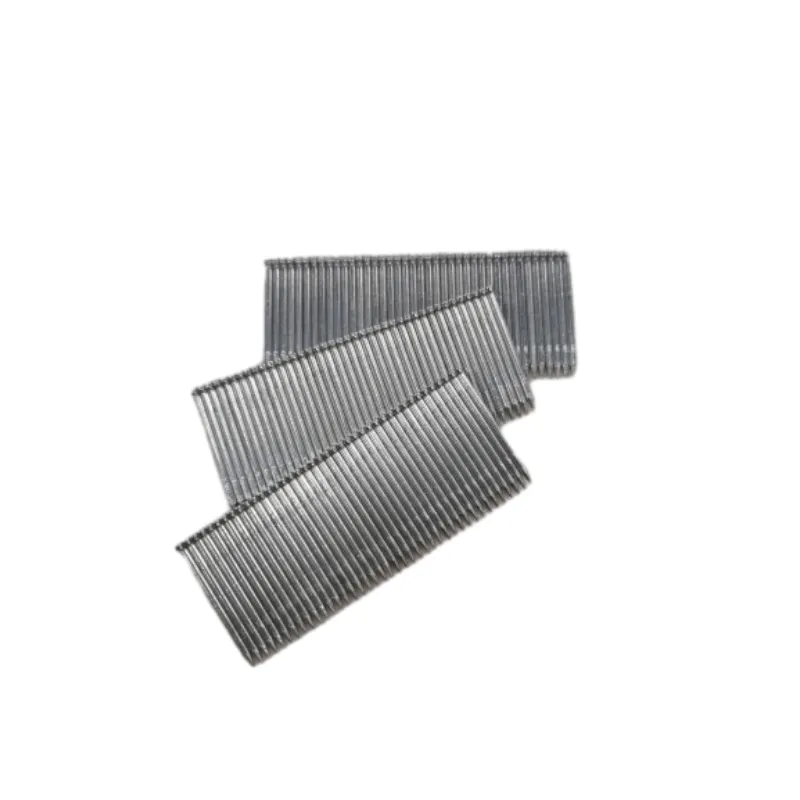
Conclusion
The 16 gauge nail is a testament to precision engineering in the industrial fastening sector. Its ideal balance of strength, minimal visual impact, and versatility makes it an indispensable asset for a wide array of B2B applications, from high-end woodworking to efficient construction finishing. By understanding its detailed manufacturing process, technical specifications, and application advantages, businesses can make informed procurement decisions that enhance productivity, ensure product quality, and contribute to long-term operational success.
Partnering with a reputable manufacturer that prioritizes quality, customization, and reliable support ensures that every 16 gauge nail deployed contributes to the robust and aesthetic integrity of your projects. Investing in high-performance fasteners like our Heavy-duty 16 Gauge Brad Nails for Woodworking Projects is an investment in the longevity and quality of your finished products.
References
- ASTM F1667-15, "Standard Specification for Driven Fasteners: Nails, Spikes, and Staples," ASTM International, West Conshohocken, PA, 2015.
- ISO 9001:2015, "Quality management systems – Requirements," International Organization for Standardization, Geneva, Switzerland, 2015.
- National Association of Home Builders (NAHB) Research Center. "Fastening Schedule for Wood-Frame Construction."
- Forest Products Laboratory. "Wood Handbook—Wood as an Engineering Material." USDA Forest Service, General Technical Report FPL-GTR-190.
-
2 Inch Brad Nails - Precision Fastening for Woodworking & ConstructionNewsNov.24,2025
-
Affordable Quality: Understanding Cheap Brad Nails and Their Global ImpactNewsNov.24,2025
-
Type F Brad Nails: Precision Fasteners for Quality Craftsmanship & IndustryNewsNov.23,2025
-
High-Quality Type 47 Brad Nails for Precision & Durability | SXJ IndustrialNewsNov.23,2025
-
T47 Nail: The Ultimate Guide to Industrial and Construction ApplicationsNewsNov.22,2025
-
Everything You Need to Know About T Head Brad Nails | Global Fastening SolutionsNewsNov.22,2025

